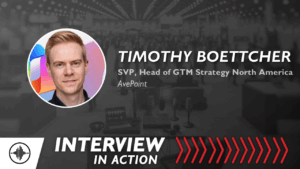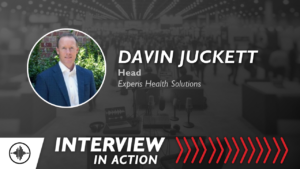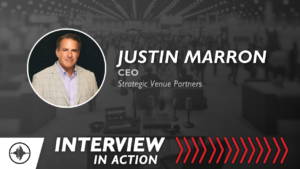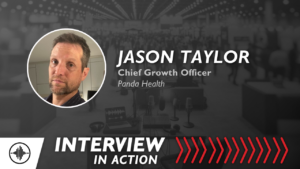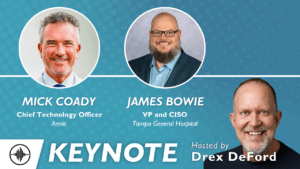Ad
Ad
Home • Blogs • Accent Notes • 8 questions CIOs should ask to prime their business for gen AI
by Diana Bersohn and Lan Guan
8 questions CIOs should ask to prime their business for gen AI
Tip
26 Sep 2023 • 7 mins
Application Management Artificial Intelligence CIO
Gen AI has captured the attention of companies worldwide with speed and force, and, in turn, has significant implications for business operations, models, products, and services. And business leaders are taking note.
Credit: getty
Companies are now recognizing the work ahead of them to get their data, people, and processes ready to capitalize on gen AI’s potential. In fact, insights from a recent Accenture survey found that nearly all (99%) executives said they plan to amplify their investments in the technology. So leaders will need to radically re-think how work gets done. And CIOs—given their cross-functional view of business processes coupled with an intimate understanding of how technology can be leveraged to reinvent operations and deliver value—are especially well-positioned to help their organizations become enterprise-ready for gen AI.
Yet leaders struggle to take the necessary next steps to get the technology off the ground. For instance, a recent report from Accenture Strategy found that 67% of senior tech leaders view a lack of tech-fluency among their peers as a major barrier to integrating technology into strategy development. Critical to getting this right is understanding and linking gen AI and innovation to enterprise success.
Integrating AI effectively into a business begins with setting clear objectives that define the business value and aligning the AI strategy with these overarching business goals. Many CIOs, already responsible for driving their company’s digital agenda, have begun doing so with gen AI front and center, tapping AI solutions that deliver on the most critical elements of the strategy. They recognize that building a strong foundational architecture is an essential first step on their organization’s journey to enterprise readiness—and one that will position the business to scale gen AI with maximum efficiency and effectiveness, and foster successful adoption across the enterprise. In fact, 98% of global executives agree AI foundation models will play an important role in their organization’s strategies in the next three to five years.
So, what can CIOs do now? In the process of designing our new AI Navigator for Enterprise—a tool to help guide clients on their AI journeys—we’ve identified the following eight questions CIOs should ask themselves to pressure-test whether their enterprise is gen-AI ready:
Which foundation model should we use? In other words, what architecture best ensures model outputs are relevant, reliable, and usable. The number of gen AI models and vendors is growing by the minute. Choosing one requires careful considerations to ensure it fits your organization’s needs and asks.
How should I make these models accessible for us? There are two principal approaches a business can take to deploy the models, each with its own merits. Will you need a “full control” option in which you access the models on your own public cloud, or do you plan to access gen AI as a managed cloud service from an external vendor, allowing for speed and simplicity?
How will we adapt models to our own data for consumption? AI, together with data, has become a key component of a robust digital core —the main source of competitive advantage for companies today. Getting maximum value from gen AI requires leveraging your proprietary data to bolster accuracy, performance, and utility within the enterprise. Consider the various ways you can adapt pre-trained models with your own data to create customized tools relevant for your organization and your people.
What’s our overall enterprise readiness? First consider your integration and interoperability frameworks. Are your foundation models secure and safe to use? The adoption of gen AI brings fresh urgency to the need for every company to have a robust and responsible AI compliance program in place. Adhering to laws, regulations, and ethical standards is imperative to build a sound AI foundation, as is administering controls to assess the potential risk of gen AI use cases at the design stage.
What about our carbon footprint? Foundation models, although they come pre-trained, can still use significant energy during adaptation and fine-tuning. How much, and the implications of it, depend on the approach taken to buy, boost, or build the foundation models. Left unchecked, this has the potential to cause consequential environmental impact, making it all the more important to weigh sustainable considerations up front in order to make the right choices for both the business and the environment.
How can we industrialize gen AI app development? The next step after choosing and deploying a foundation model is to consider what new frameworks may be required to industrialize and accelerate application development. Prompt engineering techniques are fast becoming a differentiating capability. By industrializing the process, you can build up a corpus of efficient, well-designed prompts and templates aligned to specific business functions or domains.
What do we need to operate gen AI at scale? The complexity that comes with upending existing processes and reinventing ways of working with new tech is its own challenge. But finding ways to monetize the value generated by AI at scale should be the question on every CIO’s mind. AI, by virtue of its capabilities, is fertile ground for fostering innovation. And CIOs, by virtue of their role, are well-connected across the enterprise fabric. Finding opportunities for cross-functional collaboration will lead to fresh insights and informed decision-making that promote open innovation both within your organization and across your industry, while unlocking new opportunities for growth.
Where do I start and how do we proceed to guide where we want to go? Generative AI-enabled productivity is the next major milestone. Software development is an area ripe for CIOs to make an impact. Dive in and share your use case to demonstrate your team’s real-world experience with tangible results from your pilot projects. For example, Accenture last year looked at how gen AI can help our software development team launch products faster. We used gen AI tools, like Amazon CodeWhisperer, and saw a significant improvement in developer productivity and code quality. Our overall release cycles were faster, which helped us deliver our new AWS Velocity platform in record time. By being your own case study, you can show how to make it real and guide the rest of the organization on where to experiment and test, move fast, and expand the usage quickly. You’ll be more equipped to guide your stakeholders on where technology can go, how fast you can move, and what results the organization can expect.
A new inflection point
Technology is paramount to achieving stronger growth, more agility, and greater resilience for every industry, with gen AI being the key differentiator. So much so that the technology is set to fundamentally transform work and life as we know it. Our research found that 40% of all working hours can be impacted by large language models (LLM). A closer look shows that in IT and technology roles specifically, 73% of total working hours can be transformed by gen AI, bringing to bear the importance of creating the right foundation for scaling gen AI securely, responsibly, cost-effectively, and in a way that delivers real business value.
CIOs have a significant opportunity to step up and help their business navigate the complexities of today’s rapidly transforming digital landscape. Using breakthrough advances in AI and a holistic approach to performance that looks across the entire enterprise, they can identify ways to make technology work for them in order to set new performance frontiers and redefine themselves and the industries in which they operate.
Ad
It all begins with enterprise readiness, and CIOs hold the key to unlocking value to create the organization for tomorrow.
by Diana Bersohn
Columnist
Diana Bersohn is a managing director in Accenture Strategy - Technology. She is a leader in strategy and transformation, specializing in global IT operating models and large-scale business and technology transformations.
More from this author
tip
3 things CIOs must do now to accurately hit net-zero targets
By Diana Bersohn
05 Jun 2023 • 5 mins
CIO Accenture Emerging Technology
opinion
4 moves CIOs should make to achieve a more efficient IT organization
By Diana Bersohn
17 Jan 2023 • 5 mins
CIO Agile Development Cloud Management
opinion
How democratized technology is redefining the CIO landscape
By Diana Bersohn
15 Sep 2022
CIO
by Lan Guan
Chief AI Officer
Lan Guan serves as chief AI officer for Accenture, working closely with companies across industries and geographies to develop data and AI strategies that drive value and growth. She is also a member of the Global Management Committee, and leads the Accenture Center for Advanced AI—the AI epicenter that enables enterprises to capture and create value from their AI investment. Prior to this, Guan was the global leader for data and AI for Accenture Cloud First.
Most popular authors
Peter Sayer
Senior Editor
Anirban Ghoshal
Senior Writer
Paula Rooney
Senior Writer
Show me more
0 1
opinion
The changing face of cybersecurity threats in 2023
By Dipti Parmar
29 Sep 2023 • 8 mins
Cybercrime Security
0 2
brandpost
Should finance organizations bank on Generative AI?
By Jay Limbasiya, Global AI, Analytics, & Data Management Business Development, Unstructured Data Solutions, Dell Technologies
29 Sep 2023 • 5 mins
Artificial Intelligence
0 3
brandpost
Embrace the Generative AI revolution: a guide to integrating Generative AI into your operations
By Juergen Mueller
29 Sep 2023 • 4 mins
Artificial Intelligence
0 4
podcast
CIO Leadership Live India with Debashis Singh, CIO, Persistent Systems
29 Sep 2023 • 20 mins
CIO Leadership Live
0 5
podcast
Teradyne CIO Shannon Gath on GenAI explorations
28 Sep 2023 • 58 mins
CIO Leadership Live
0 6
podcast
CIO Leadership Live Canada with Jassi Kaur, Head of IT and Security, Bulk Barn Foods Limited
28 Sep 2023 • 14 mins
CIO Leadership Live
0 7
video
CIO Leadership Live India with Debashis Singh, CIO, Persistent Systems
29 Sep 2023 • 20 mins
CIO Leadership Live
0 8
video
Teradyne CIO Shannon Gath on GenAI explorations
28 Sep 2023 • 58 mins
CIO Leadership Live
0 9
video
CIO Leadership Live Canada with Jassi Kaur, Head of IT and Security, Bulk Barn Foods Limited
28 Sep 2023 • 14 mins
CIO Leadership Live
About
About Us
Advertise
Contact Us
Foundry Careers
Reprints
Newsletters
BrandPosts
Policies
Privacy Policy
Cookie Policy
Copyright Notice
Member Preferences
About AdChoices
Your California Privacy Rights
Privacy Settings
Our Network
Copyright © 2023 IDG Communications, Inc.

